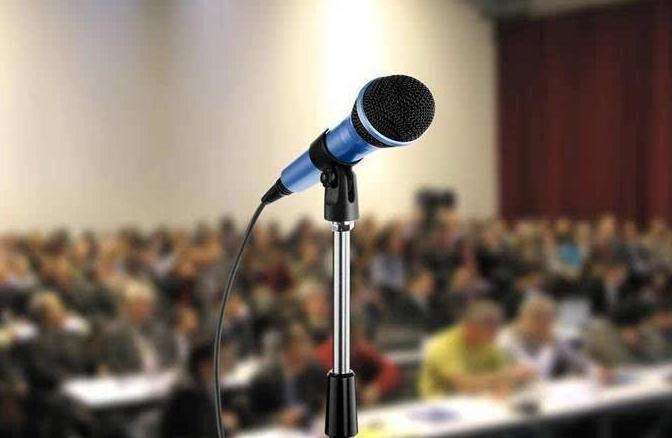下面是小编为大家整理的(英语四级考试前必做)2015年12月四级真题(第2套),供大家参考。

机密* 启用前
大
学
英
语
四
级
考
试 试 COLLEGE ENGLISH TEST — Band Four— — 5 (2015 年 年 2 12 月第 2 2 套 套) ) 试
题
册 册
敬
告
考
生 生
一、在答题前, , 请认真完成以下内容: : 1. 请检查试题册背面条形码粘贴条、答题卡的印刷质量,如有问题及时向监考员反映,确认无误后完成以下两点要求. 2. 请将试题册背面条形码粘贴条揭下后粘贴在答题卡 1 的条形码粘贴框内,并将姓名和准考证号填写在试题册背面相应位置. 3. 请在答题卡 1 和答题卡 2 指定位置用黑色签字笔填写准考证号、姓名和学校名称,并用 HB-2B铅笔将对应准考证号的信息点涂黑. 二、在考试过程中, , 请注意以下内容: : 1. 所有题目必须在答题卡上规定位置作答,在试题册上或答题卡上非规定位置的作答一律无效. 2. 请在规定时间内在答题卡指定位置依次完成作文、听力、阅读、翻译各部分考试,作答作文期间不得翻阅该试题册.听力录音播放完毕后,请立即停止作答,监考员将立即收回答题卡 1,得到监考员指令后方可继续作答. 3. 作文题内容印在试题册背面,作文题及其他主观题必须用黑色签字笔在答题卡指定区域内作答. 4. 选择题均为单选题,错选、不选或多选将不得分,作答时必须使用 HB-2B 铅笔在答题卡上相应位置填涂,修改时须用橡皮擦净. 三、以下情况按违规处理: : 1. 未正确填写(涂)个人信息,错贴、不贴、毁损条形码粘贴条. 2. 未按规定翻阅试题册、提前阅读试题、提前或在收答题卡期间作答. 3. 未用所规定的笔作答、折叠成毁损答题卡导致无法评卷. 4. 考试期间在非听力考试时间佩戴耳机.
全国大学英语四、六级考试委员会
) Part I
Writing
(30 minutes)
Directions : For this part, you are allowed 30 minutes to write an essay commenting on the saying “Learning
is a daily experience and a lifetime mission.” You can cite examples to illustrate the importance of lifelong learning. You should write at least 120 words but no more than 180 words .
) Part II
Listening Comprehension
(30 minutes)
Section A Directions : In this section, you will hear 8 short conversations and 2 long conversations. At the end of each conversation, one or more questions will be asked about what was said. Both the conversation and the questions will be spoken only once. After each question there will be a pause. During the pause, you must read the four choices marked A), B), C) and D), and decide which is the best answer. Then mark the corresponding letter on Answer Sheet 1 with a single line through the centre .
Question 1 to 8 are based on the short conversation you have just heard.
1. A) The agenda for the board of directors’ meeting. B)The details of the meeting to be held next week. C)The reason for the man’s absence from the meeting. D) The time for the man’s visit to the woman’s company. 2. A) At a travel agency.
C) In a library. B) At a department store.
D) In a post office. 3. A) He cannot hear the woman’s call.
C) He cannot recall the phone number. B) He cannot get through to New York.
D) He cannot find a public phone nearby. 4. A) Watch a movie with the woman.
C) Do some shopping with Jane. B) Revise his thesis in the office.
D) Discuss his thesis with Prof. Hudson. 5. A) He just cannot work properly without a watch.
B) He has no idea where he can buy a gold watch. C) He still does not know where he left his watch. D) He is not sure what went wrong with his watch. 6. A) He forgot all about what he said.
C) He was sorry for being off sick last week. B) He slipped and hurt his head.
D) He thought the woman’s car had been sold. 7. A) She should try to catch an earlier bus.
C) She is always making excuses for being late.
B) She is absent from his class too often.
D) She should come up with a better excuse. 8. A) He is going to help the woman out.
C) He is on his way to see a real estate agent. B) He has to move out of the building soon.
D) He will stay with the woman’s brother.
Question 9 to 11 are based on the conversation you have just heard.
9. A) From the wanted column.
C) From a telephone directory. B) From some of her friends.
D) From a television commercial. 10. A) She received full-time education abroad.
B) She graduated from an open university.
C) She finished her secondary school. D) She studied in a vocational college. 11. A) She is a shorthand-typist.
C) She is a policewoman
B) She works as a tour guide.
D) She teaches an evening class.
Question 12 to 15 are based on the conversation you have just heard.
12. A) It provides him with career opportunities.
C) It has been off and on for ten years.
B) It helps enlarge his customer network.
D) It was interrupted for four years. 13. A) Individualized service.
C) Home-made beer.
B) Traditional setting.
D) Social games. 14. A) The quality of beer.
C) The owner’s attitude.
B) The atmosphere.
D) The right location. 15. A) It is a rather tough job.
C) It helps old people kill time.
B) It is a profitable business.
D) It makes retirees feel useful.
Section B B Directions : In this section, you will hear 3 short passages. At the end of each passage, you will hear some questions. Both the passage and the questions will be spoken only once. After you hear a question, you must choose the best answer from the four choices marked A), B), C) and D). Then mark the corresponding letter on Answer Sheet 1 with a single line through the centre.
Passage One Question 16 to 18 are based on the passage you have just heard.
16. A) It is becoming increasingly popular. C) It gives rise to serious social instability. B) It helps the user to escape reality.
D) It hurts a person and those around them. 17. A) They use drugs just for fun.
C) They use drugs as medicine. B) They take drugs to get high.
D) They keep drug use a secret. 18. A) It is quite common in entertainment circles. B) It is the cause of various social problems. C) It is hard to get rid of. D) It is fatal to the user.
Passage Two Question 19 to 22 are based on the passage you have just heard.
19. A) Taking up exercises after recovery.
C) Finding new ways to cure heart disease. B) Producing tasty healthy frozen food. D) Going on a diet upon leaving the hospital. 20. A) It was carefully tested with consumers.
C) It was disapproved by many diet experts. B) It was promoted by health organizations.
D) It was highly expected by the general public. 21. A) Competitive price.
C) Vigorous promotion. B) Low expectations.
D) Unique ingredients. 22. A) It was suggested by the firm’s vice-president. B) It matches the food’s dark green packaging. C) It has a positive implication for consumers. D) It tricks the elders into impulse purchasing.
Passage Three Question 23 to 25 are based on the passage you have just heard.
23. A) It is practiced in most of the states.
B) It will be abolished sooner or later.
C) It has drawn a lot of criticism from overseas. D) It has to be approved by the Supreme Court. 24. A) Whether the practice should be allowed to continue in future. B) Whether there should be a minimum age limit for execution. C) What type of criminals should receive it. D) What effect it might have on youngsters. 25. A) The court sentenced him to life in prison for killing two friends. B) The governor changed his death sentence to life in prison. C) He was the first minor to be executed in South Carolina. D) He was sentenced to death for a crime he committed as a minor.
Section C C Directions: :
In this section, you will hear a passage three times. When the passage is read for the first time, you should listen carefully for its general idea. When the passage is read for the second time, you are required to fill in the blanks with the exact words you have just heard. Finally, when the passage is read for the third time, you should check what you have written.
Some people borrow money and “forget” to pay it back. Large loans are seldom the issue; they are usually treated as business
26
, with the terms spelled out on paper. But many women suffer
27
over problems like Carol’s “My friend Ginny is always 28 cash,” she says. “I hate to recall how often I’ve ‘loaned’ her a dollar or two for a drink or a movie. Each loan is so small I’d feel really cheap making a big deal out of it; still, I do
29
the fact that she never pays me back. Carol admits to being “too
30
or something” to demand repayment, but she has resolved to stop lending money to Ginny. The last time she asked for five dollars to pay for her dry cleaning, I just told her I couldn’t
31
it.” Another woman suggests a bolder
32
. “When somebody refuses to repay a loan, I
33
by requesting one myself,” she says. “ ‘I left home without my wallet,’ I’ll say. ‘Can you lend me enough to cover lunch?’ Then, when the money is safely in hand, I am struck by a sudden
34
. ‘Why, this is exactly the amount I loaned you last week! How
35
! Now you won’t have to repay me!’”
She says it works like a charm.
Part III
Readi) ng Comprehension
(40 minutes)
Section A Directions : In this section, there is a passage with ten blanks. You are required to select one word for each blank from a list of choices given in a word bank following the passage. Read the passage through carefully before making your choices. Each choice in the bank is identified by a letter. Please mark the corresponding letter for each item on Answer Sheet 2 with a single line through the centre. You may not use any of the words in the bank more than once.
Question 36 to 45 are based on the following passage.
For many Americans, 2013 ended with an unusually bitter cold spell. Late November and December
36
early snow and bone-chilling temperatures in much of the country, part of a year when, for the first time in two
37
, record-cold days will likely turn out to have outnumbered record-warm ones. But the U. S. was the exception: November was the warmest ever
38
, and current data indicates that 2013 is likely to have been the fourth hottest year on record. Enjoy the snow now, because
39
are good that 2014 will be even hotter, perhaps the hottest year since records have been kept. That’s because, scientists are predicting, 2014 will be an El Nino year. El Nino, Spanish for “the child”,
40
wh...





